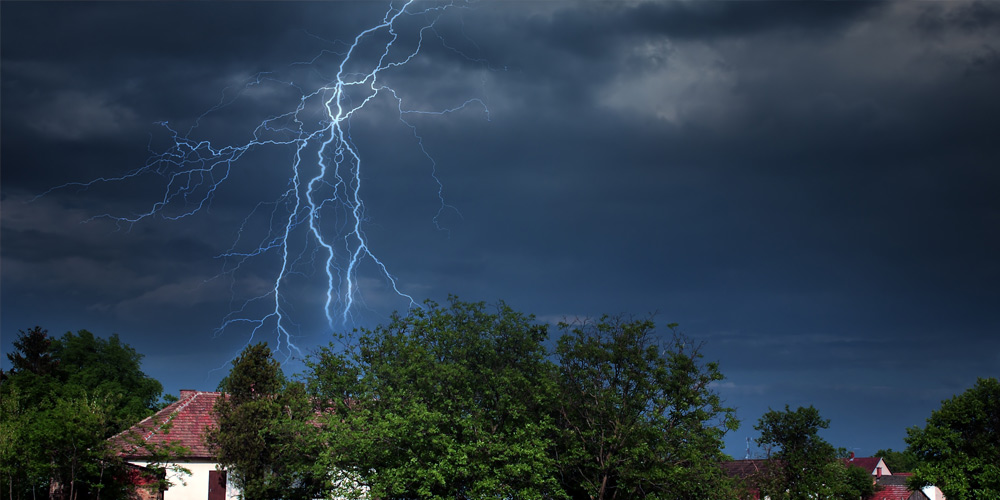
No matter the time of year, a thunderstorm can be unnerving for pets, children, and those who fear the loud boom of thunder and the bright flash of lightning. Even more frightening is the idea that a nearby lightning strike can affect your home’s electrical wiring, including your HVAC unit. Arkansas has 100 days of precipitation a year on average, which means it’s highly likely that a nearby lightning strike during a thunderstorm can damage electrical and plumbing fixtures.
The initial lightning strike isn’t generally what damages HVAC units right away—it’s the power surges following an outage that can cause air conditioners to receive damage in a storm. A power surge is a spike in voltage and varies in both duration and magnitude. While most homes use 120-volt, 60 Hz, single phase electric power, a power surge spikes the voltage to 169 volts, causing damage to appliances and electronics that rely on that power to work.
When lightning strikes damage an air conditioning unit, the effect may not be immediately apparent. Over the course of a few months following a nearby lightning strike, you might notice your air conditioner doesn’t work as well. Here are a few problems with your air conditioning to watch for following a lightning strike:
- Damaged capacitor: The most common air conditioning part to give way following a power surge, a damaged capacitor can lead to further problems, including compressor failure.
- Blown fuses: If the voltage has damaged your air conditioner, you are more likely to encounter an air conditioning system which trips a breaker or blows the fuse due to damaged electrical lines.
- Burned wires: If a power surge damages electrical wires within the air conditioner or within your home, your air conditioner might not work.
- Damaged compressor: One of the most expensive parts to fix in an air conditioning unit, a damaged compressor may not be noticeable right away. It can take weeks or months for an air conditioning unit to finally fail and indicate that the compressor was damaged.
It’s important to have your HVAC unit inspected following a lightning strike to avoid more expensive replacements down the road.
How to Protect Your AC Unit Against Lightning Strikes
How do you prevent damage to air conditioners following a lightning strike? For starters, it’s not possible to entirely prevent electrical damage from lightning strikes. Since we can’t predict when or where lightning can strike, the best you can hope for is little to no damage to your home if the worst happens. If a direct lightning strike damages your air conditioner, for example, there would have been little you could have done to stop it. You can, however, take steps when a thunderstorm is predicted to prevent harm from power surges.
First, it’s important to use outlet surge suppressors between appliances and the electrical outlet. This minimizes the damage left behind by power surges and can protect your devices from the effects of a surge.
Second, you might consider panel-mounted surge protection to reduce the damage to your home’s electric gateway. Surge protection for your entire home is a good investment to save wiring and appliances from the damage a lightning strike can cause.
Finally, to prevent damage to your air conditioning unit, turn off the air conditioner at the thermostat during a lightning storm. If power is not running to the unit when the lightning hits nearby, it’s less likely that there will be serious damage than if the unit was turned on.
Don’t wait until it’s too late to have your air conditioning unit inspected following a lightning strike. Call one of the professional HVAC technicians at B.R. McGinty at 501-847-6800 today to schedule an appointment!


